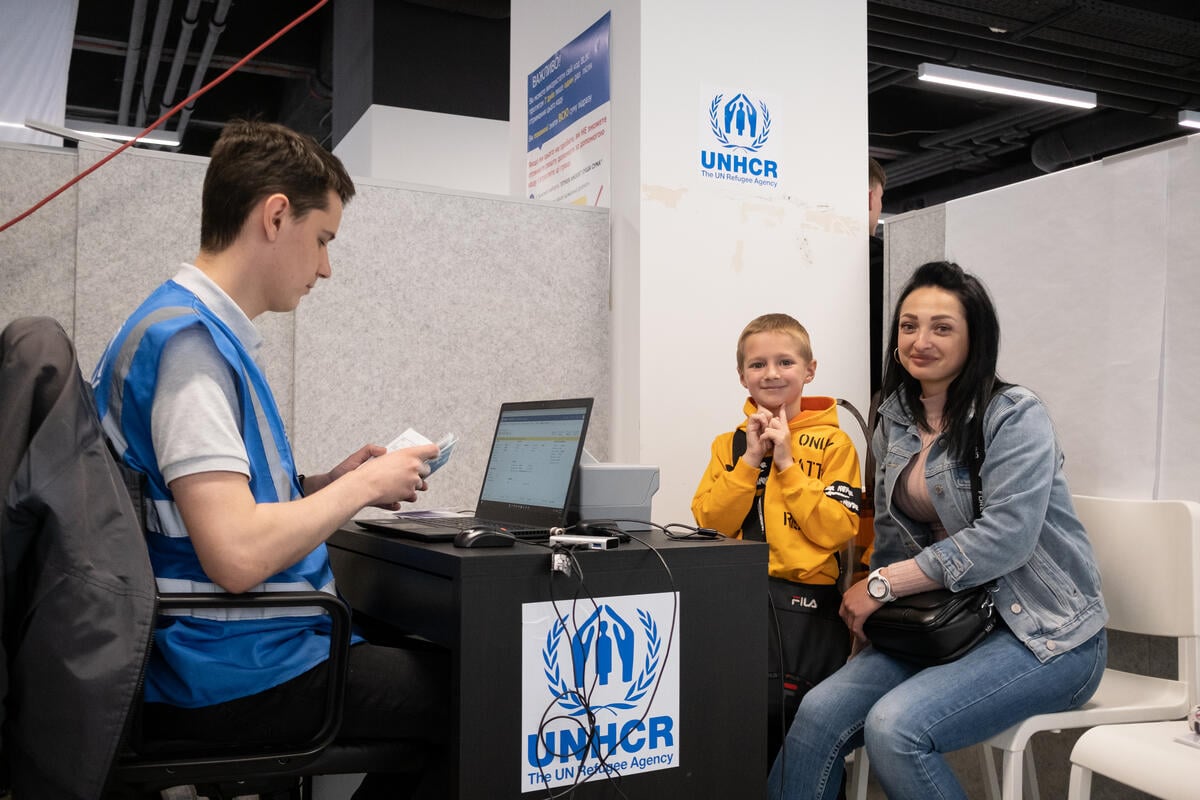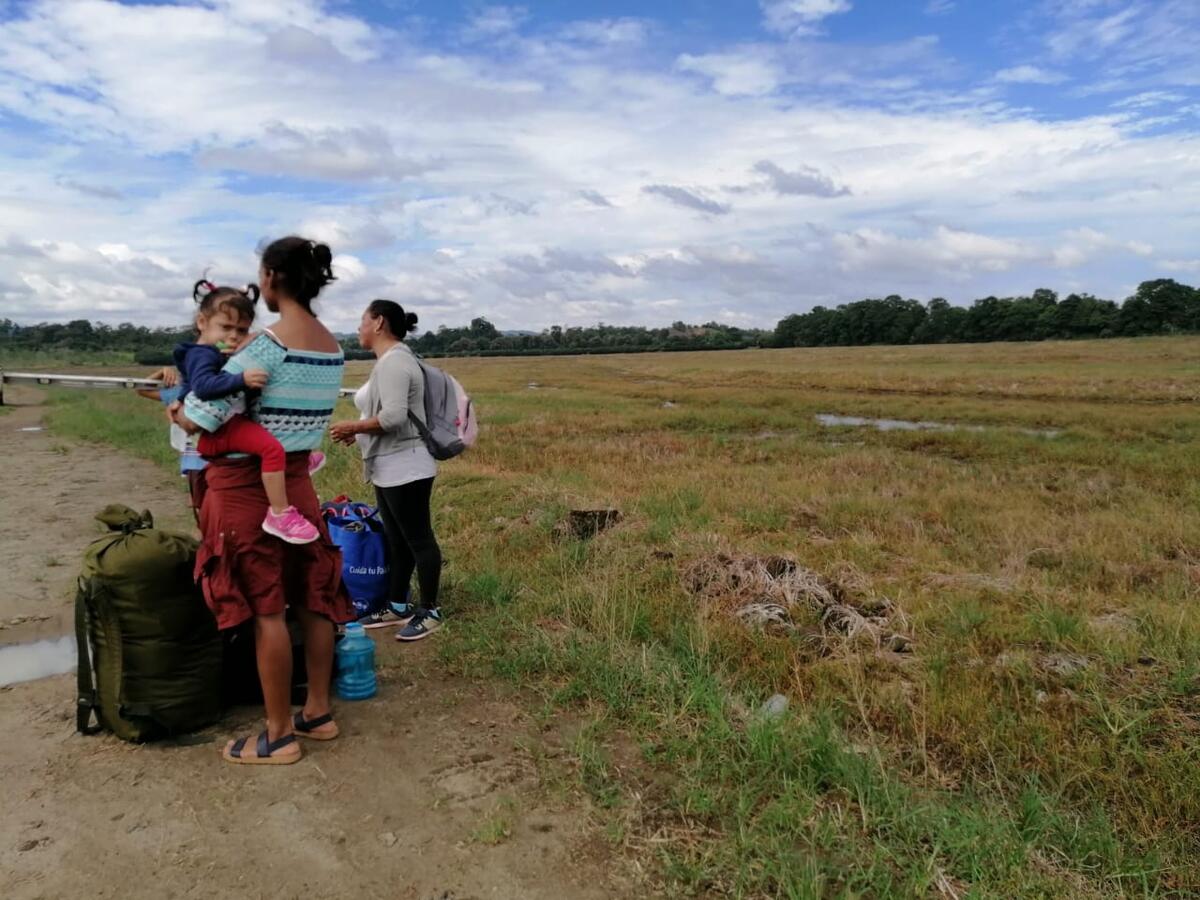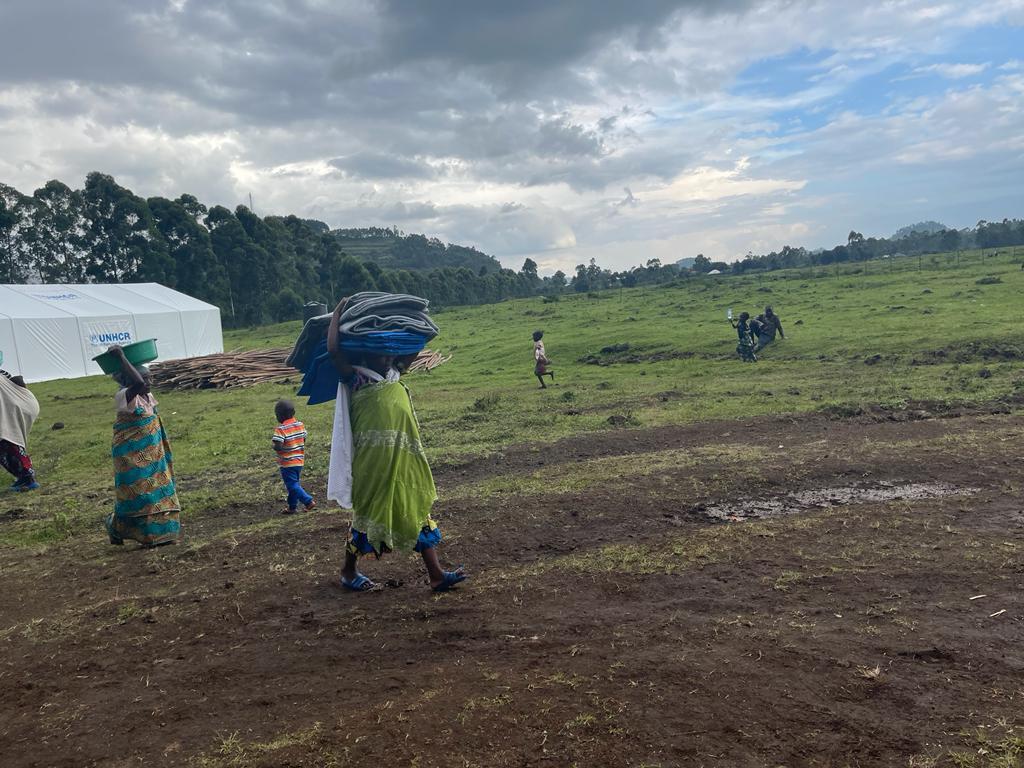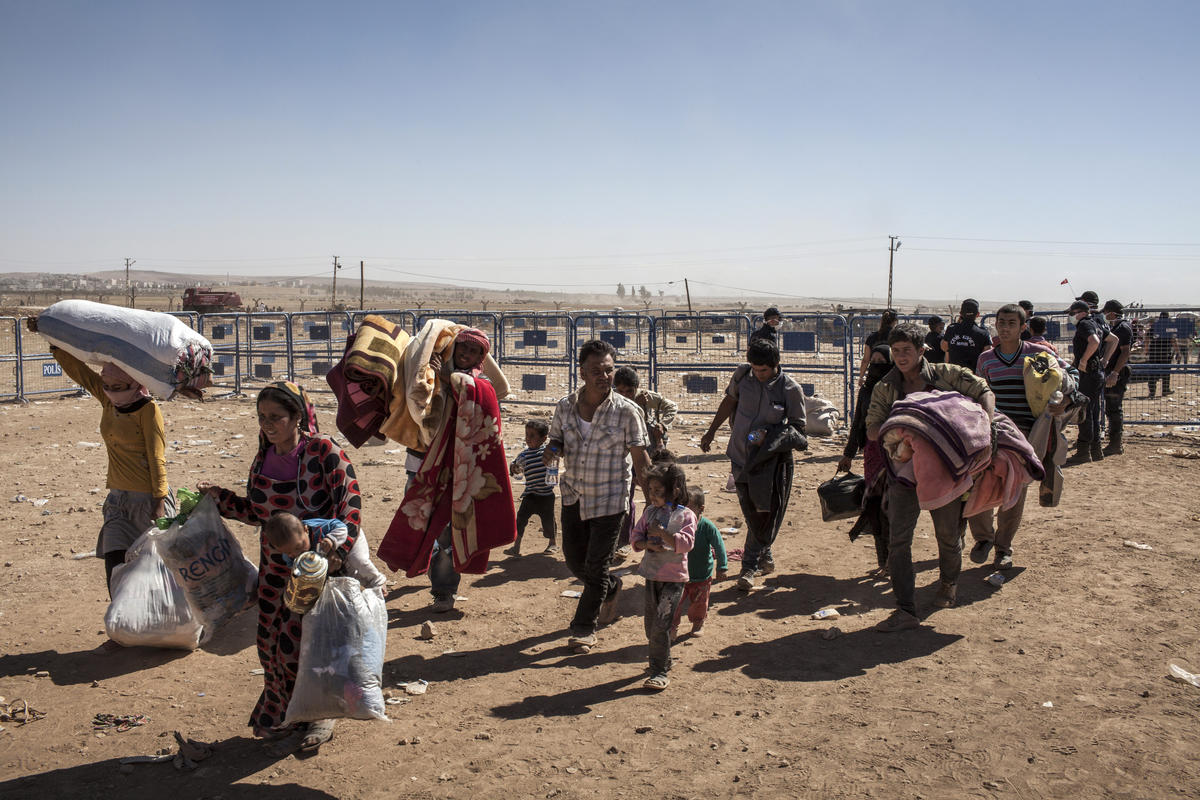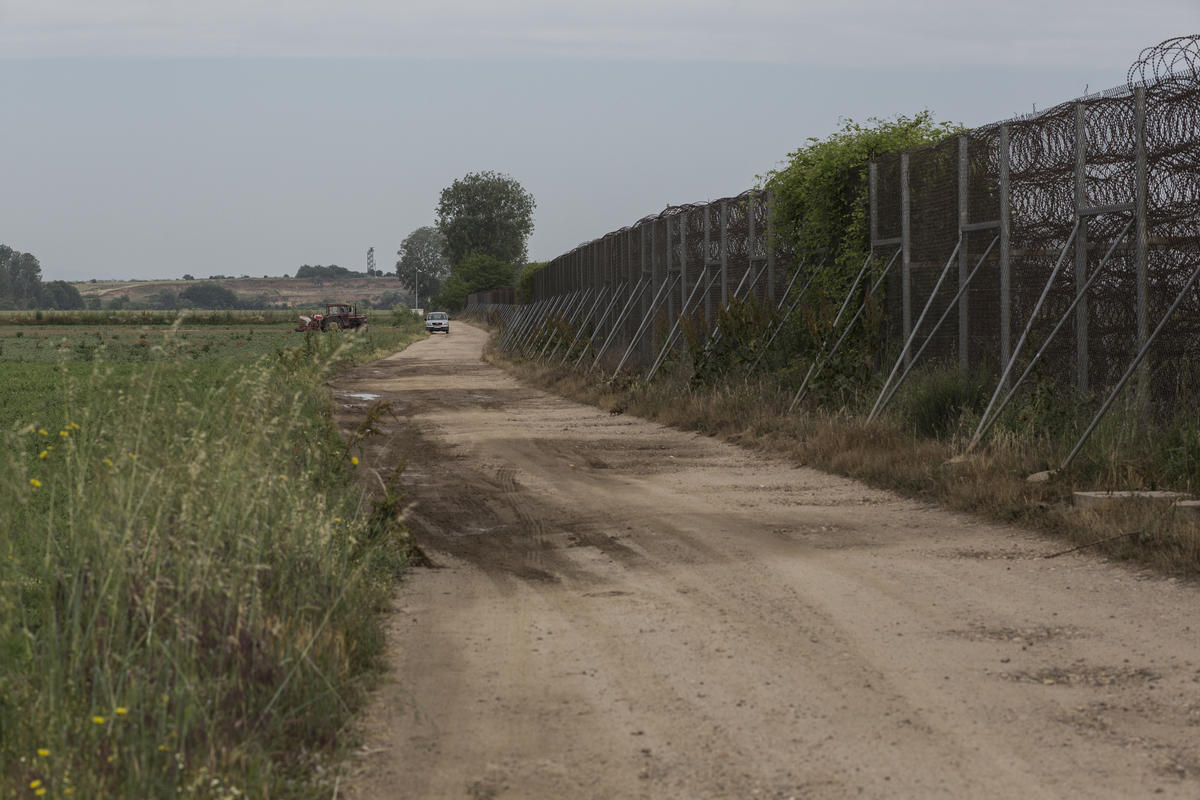Border officials work overtime to help Zimbabwean asylum seekers
Border officials work overtime to help Zimbabwean asylum seekers

MUSINA, South Africa, November 5 (UNHCR) - Bravieouse Moloi still can't get over how quickly it took for officials to grant her permission to remain in South Africa while her asylum request is processed. Less than a week after crossing the border from her native Zimbabwe, the 19-year-old has an asylum seeker permit and is looking for work.
"I will find myself piece work to support my family back home," she told UNHCR late last month at the Refugee Reception Office in Musina, a town close to the northern border with Zimbabwe. Hundreds of her compatriots were queuing up to request their own permits, which prevent deportation and allow the bearer to work and study while their application for refugee status is being determined.
Since it opened in July, a dozen civil servants from South Africa's Department of Home Affairs (DHA) backed by UNHCR have issued close to 18,000 asylum seeker permits to Zimbabweans fleeing persecution or violence.
"They have worked flat out to accommodate the needs of the people as well as prevent a situation where they would be queuing for days without getting their permits," said UNHCR Senior Regional Protection Officer Monique Ekoko, who works closely with the staff at Musina.
The DHA set up the Musina office to handle the increased volume of Zimbabweans crossing the border to seek asylum. The office is also part of the DHA's stepped-up effort over the past two years to clear the backlog of new applicants for refugee status - currently close to 100,000 - improve services, eradicate corruption and meet its obligations to refugees and asylum seekers.
It ensures that the protection needs of asylum seekers without documentation are addressed soon after they enter South Africa. "In the past, when asylum seekers tried to reach Pretoria or Johannesburg [to apply for a 14-day transit permit], they would be arrested, detained and deported before they got the chance to present themselves to a refugee reception office," Ekoko noted.
The reception office has become a safe haven for thousands of Zimbabweans seeking international protection. Mzukisi Makatse, acting director of the office, said the participation of UNHCR had contributed significantly to its ability to deliver on its mandate and obligations to refugees and asylum seekers.
"First of all there is a fundamental basis for us to have a relationship with UNHCR and over the years our relationship has grown in leaps and bounds. In Musina though, we have taken that relationship a step further because we have productive relations with the different officers from the Pretoria office who have offered us nothing but constant support and expert advice."
UNHCR supports the Musina refugee reception office with legal and technical expertise. The centre's eight refugee reception officers and four refugee status determination officers process up to 350 asylum applications a day, five days a week. Most are from Zimbabwe, but there are also small numbers from Somalia, Ethiopia and Democratic Republic of the Congo.
The refugee agency provides country of origin information to help determine the status of the applicants. It has also provided equipment and stationery to ensure that the registration of asylum seekers is carried out smoothly and expeditiously.
In the area of legal counselling, UNHCR works with Lawyers for Human Rights and the Musina Legal Advice Office, who monitor the undocumented refugees and asylum seekers and intervene where their rights have been violated. They also give legal advice and financial assistance to asylum seekers who wish to go elsewhere.
South Africa, with the most dynamic economy on the continent and a liberal policy toward asylum seekers, has been a magnet for both refugees and economic migrants seeking to improve their lives. Unlike many other countries in Africa, South Africa does not operate refugee camps and asylum seekers are free to work while their cases are considered.
"It is very rewarding to see the joy in people's faces when they're issued the asylum seeker permit," said Makatse. "Whatever the outcome of an individual's asylum application, they are in the interim allowed to earn a living and regain the dignity that is stripped of them during flight from persecution."
By Pumla Rulashe in Musina, South Africa



